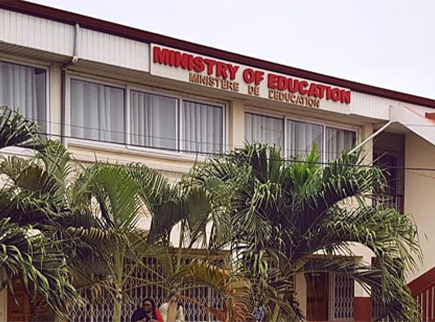The Global Education Evidence Advisory Panel (GEEAP) has launched a new report to offer evidence-based solutions to address the global literacy crisis among children.
The report titled “Effective Reading Instruction in Low- and Middle-Income Countries: What the Evidence Shows,” identified the key skills pupils must learn and what teachers must learn to teach to effectively support the acquisition of literacy.
It was launched on Thursday at this year’s Triennale Association for the Development of Education in Africa (ADEA Triennale), in Ghana.
It is on the theme: “Strengthening the Resilience of Africa’s Educational Systems: Advancing Towards Ending Learning Poverty by 2025 with a Well-Educated and Skilled Workforce for the Continent and Beyond.”
The report is based on evidence from around 120 studies (including 50 studies in African countries) on effective reading instruction conducted across Africa, Asia, Latin America, and the Middle East.
It encompasses over 170 languages, of which 22 are specific to the African region, including Arabic, Chichewa, isiZulu, Kikamba, Kiswahili, Oromo, Setswana, and Siswati, amongst others.
A 2022 World Bank State of Global Learning Poverty report indicated that 70 per cent of children in low- and middle-income countries (LMICs) cannot read and understand simple, age-appropriate text.
This situation is more severe in Sub-Saharan Africa, where the learning poverty rate is estimated to be 89 percent.
A study that analysed data from early grade reading assessments (EGRAs) from over 500,000 students across 48 LMICs in 96 languages revealed the depth of the crisis: it showed that after three years of schooling, over 90 per cent of students can’t identify letter names or letter sounds or read simple words at expected levels.
It said the failure to use evidence-based approaches to instruction was one of the main causes of the literacy crisis, but improving how teachers teach could change this.
It recommended investing in proven reading methods during children’s early school years, which could likely reduce the need for expensive remedial programmes later, decrease grade repetition, and lower dropout rates.
Ms Pia Rebello Britto, UNICEF Global Director, Education and Adolescent Development, speaking at the event, said, “Many children are in school but not yet learning to read,” adding that the report highlighted how literacy is at the very core of a child’s learning trajectory – shaping their opportunities and future.
She said with African governments committed to the Decade of Accelerated Action for the Transformation of Education and Skills Development in Africa as well as Africa’s Agenda for Children 2040, there was the need for key investments to turn those commitments into action for children.
Investing in the early years is essential,” Ms Britto stated.
She said the research revealed that two main sets of skills were needed for reading, which includes decoding and language comprehension.
The UNICEF Global Director said to develop these skills, children needed to be explicitly taught oral language skills, phonological awareness, systematic phonics instruction, reading fluency, reading comprehension strategies, and writing skills.
Ms Nompumelelo Mohohlwane, co-author of the literacy report and Deputy Director at the Research Coordination, Monitoring and Evaluation Directorate at the Department of Basic Education, South Africa, reiterated that the central finding of science-based approaches to reading was that children do not learn to read naturally.
She said teaching children explicitly right from consensus to identifying specific skills for all languages, including African languages, was an important concrete contribution to improving literacy practices.
“Literacy is the cornerstone to education, lifelong skills, and meaningful employment.
“When children master literacy early, they have better learning outcomes and are more able to adapt, innovate, and thrive in the rapidly evolving job markets of the 21st century,” said Dr Luis Benveniste, World Bank Global Director for Education and Skills.
He urged education policymakers to promote evidence-based instruction by making a national commitment, choosing appropriate languages of instruction, delivering explicit, systematic and comprehensive reading instruction, adapting instruction to language characteristics, and focusing on effective implementation to enable more children to become skilled readers.
Mr Nathanael Bevan, Deputy Director Research, Foreign, Commonwealth & Development Office (FCDO), said following the launch, an accompanying how-to guide would be released in November alongside translated versions of the report and language briefs detailing how the findings impact teaching in Spanish, French, Arabic and Hindi.
Mr Bevan commenting on the practical use of the report findings and upcoming how-to guide, said, “This can be aligned to local contexts, cultures, languages, and goals to help tailor implementation.”
He urged countries to visit the Global Education Evidence Advisory Panel webpage for more details on the report.
The GEEAP is an independent, multidisciplinary panel of leading global experts in education evidence and policymaking that is co-hosted by the UK’s Foreign, Commonwealth & Development Office (FCDO), UNICEF and the World Bank.


https://shorturl.fm/KarbO